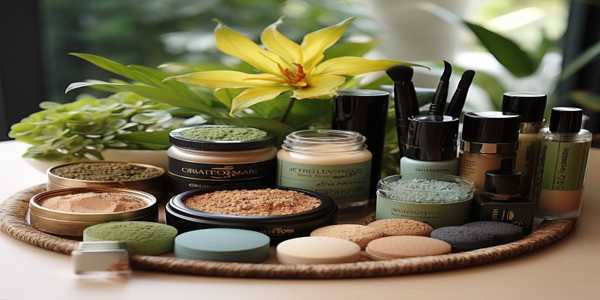How to Set Healthy Boundaries in Dating and Relationships
Every person, at some point in their life, has felt that they are the ones who always give in the relationship. Many face this common issue, and it becomes hard for them to differentiate between being compassionate and being a pushover.
Healthy boundaries are like fences that encircle your health and safety while at the same time cultivating relationships. They are not about constructing fences but about making the place secure for love to grow.

This blog post will explore realistic strategies for setting and enforcing these critical boundaries. You will discover how to express your needs clearly, how your partner can set their limits, and how you can find the middle ground.
4 Practical Tips for Setting Healthy Boundaries
Here are some more specific recommendations that should assist you in setting those critical lines in the sand. These are not just ideas but practical solutions that can be implemented in your love life.
1. Know Your Limits
Everybody has their areas of comfort, do we not? It is like being wrapped in a cocoon that no one can see, but we, the people inside, can feel the protection. Some people can be close, while others should be at arm's length. The matter is to know where your bubble starts and where it finishes.
Reflect on your past experiences in relationships. These are areas rich in information about understanding one's limits.
● List down the things that you cannot compromise. Which behaviours are you okay with?
● Of course, you have to think about your values. Are they suitable for your current relationship?
● Heed your instincts. If it looks like a fish, swims like a fish, or quacks like a fish, it is a fish. Better still, if it seems like a scam, acts like a scam, or smells like a scam, then it is a scam.
This is to remind you that understanding your capabilities is not self-centred. It is self-acknowledging. Awareness is the first step towards formulating much healthier and more positive relationships.
2. Communicate Clearly
Have you ever played charades? Guessing what the partner wants is equally as tricky. That is why it is crucial to be very specific regarding rules and regulations concerning intimate relationships.
Do not waste time on small talk. If you are annoyed by something, make it a point to voice it out.
● Try speaking your needs in front of the mirror.
● This is good, especially if it is hard to engage in face-to-face conversation and take notes of what one wishes to say.
● It is better to discuss critical issues when no emotions are high, not during quarrels.
Remember that your partner is not a mind reader, so they cannot know what is in your mind. Therefore, do not remain silent, and your relationship will be glad for it.
3. Be Consistent
Drawing the line is one thing. That is where the situation's dynamics can be considered the most tense and the characters' actions the most intense. It is like an employee annuity: if you keep shifting the goalposts, the employee does not know how much he stands to benefit.

At first, it may seem awkward, and people may push back. But stand your ground. They will eventually understand your boundaries and start adhering to them.
● To be more specific, bear a boundary journal. Remember when you or others set a boundary and how you felt during it.
● As a reward, you have to be firm with your decision and continue sticking to it. It is okay to brag a little once in a while.
● If you make a mistake, do not panic or stress too much. Just get back on track.
Remember that consistency is not equal to stiffness. It is about being dependable to yourself and others. Boundaries are your protective measures or your fence. Stand with the right ones, and they will guide you in the right direction.
4. Respect Your Partner's Boundaries
A boundary is created to protect both parties in a relationship. If you want your boundaries recognized, your partner has the same rights. It is always about give and take.
Promote discussion of the issue of boundaries. Set up a no-blame zone where you can air your needs without feeling criticized. The point of the game is not to win or to lose but to learn more about each other.
● It is also essential to know your partner's limits. Don't assume you know.
● Check in regularly. It is also essential to indicate that boundaries may shift with time.
● If you offended a person in any way or went too far, say sorry to the person and know your mistake.
Remember, when two people do not impose themselves on the other, this is not oppressive but freedom. It strengthens the bond between the two entities and makes them respect each other, and this is a relationship where both are important.
Time to Draw Your Lines!
You have the resources, and now you have to employ them. Why not start today? Talk to your partner about what you need as a couple and in the relationship. Remember that a boundary is not a wall separating people but a line defining acceptable limits.
It is about making a place secure for love to grow and blossom; this can initially feel slightly uncomfortable and may take some time to get used to, but persevere. Believing in your future self will thank you for making the change.
It is a fact that everyone wants to be in healthy relationships in life, and this is made possible by observing healthy boundaries. Therefore, don't hesitate to take that first step. This article begins with the path to the improved love life you have always wanted. You've got this!
Frequently Asked Questions
Q. Isn't setting boundaries selfish?
Ans. Nope! It's self-care. Boundaries enhance your ability to be a better partner. They help avoid the development of resentment and the feeling of 'being used' and maintain the relationship as exciting and equal.
Q. What if my boundaries change over time?
Ans. That's normal! As people become older, their requirements change. Never leave your partner guessing about something you said or how you feel about something. This way, the two of you will always be up to date, and there will be a clear understanding of the process and progress.
Q. How do I say 'no' without hurting feelings?
Ans. Be kind but firm. Explain your reasons briefly. As you know, 'no' is a complete sentence. You do not always have to explain why you are placing those boundaries.
Q. Can boundaries kill romance?
Ans. On the contrary, they can add some vigour to the relationship. Clear boundaries create safety. That is why when people are alone or feel safe, they can expose their weaknesses and make themselves vulnerable.





